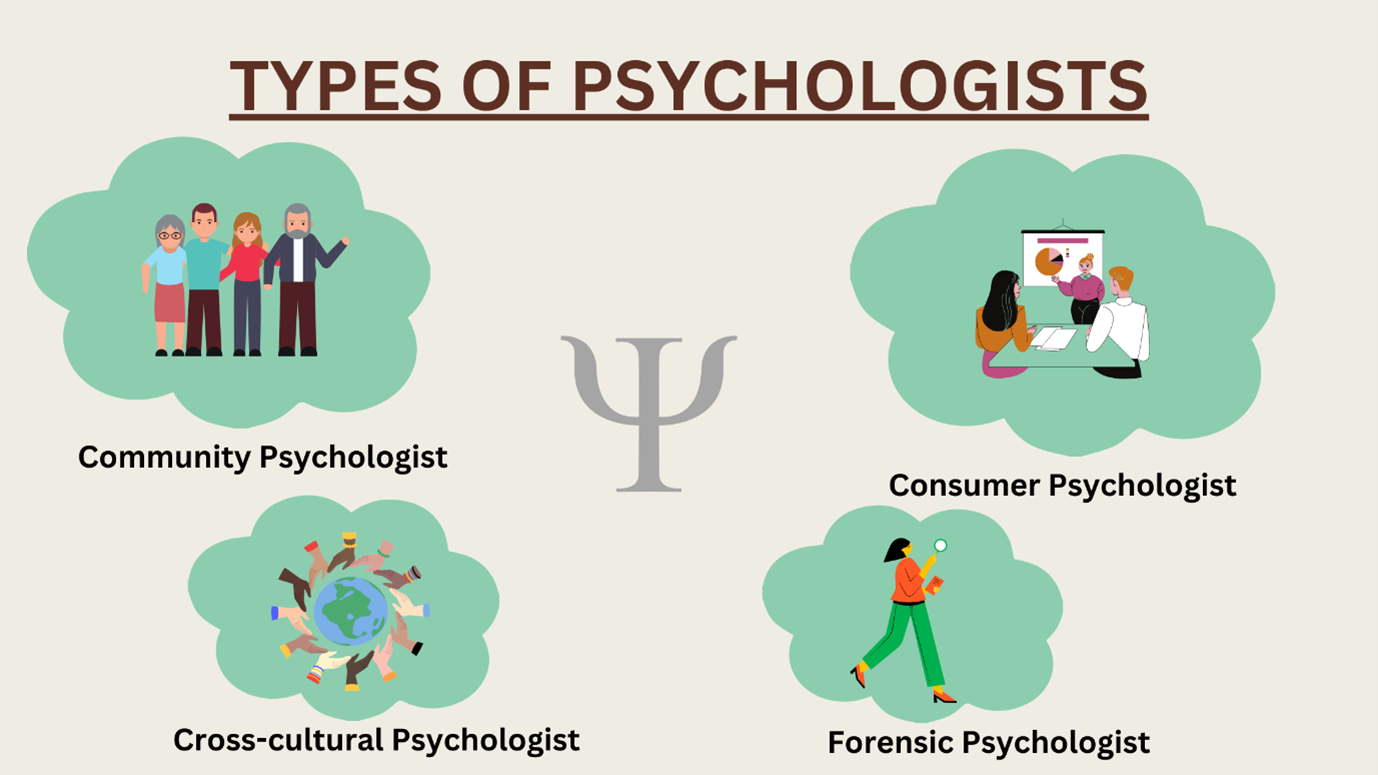What to Anticipate When Checking Out the Best Psychologist in Delhi for Counseling
What to Anticipate When Checking Out the Best Psychologist in Delhi for Counseling
Blog Article
Psych Therapy: A Comprehensive Guide to Strategies and End Results

Cognitive-Behavioral Treatment
Cognitive-Behavioral Therapy (CBT) is a widely made use of psychotherapeutic method that focuses on identifying and changing dysfunctional thinking and actions patterns. Developed in the 1960s by Aaron T. Beck, CBT combines cognitive and behavioral theories to resolve various psychological health problems, consisting of clinical depression, anxiety, and stress-related disorders. The premise of CBT is that maladaptive ideas add to psychological distress and maladaptive actions. By reorganizing these ideas, individuals can accomplish significant improvements in their emotional health and day-to-day functioning.
CBT is defined by its organized, goal-oriented nature. Therapy generally involves a collective procedure in between the specialist and customer, where specific issues are determined, and sensible methods are established to resolve them. Techniques such as cognitive restructuring, exposure therapy, and skill-building exercises are frequently employed. Cognitive restructuring involves difficult and changing unfavorable idea patterns, while exposure treatment aims to minimize worry and anxiety through steady direct exposure to been afraid items or scenarios.
Evidence-based research supports the efficacy of CBT for a vast array of emotional problems - Best Psychologist in Delhi. Its focus on skill purchase and self-help techniques encourages clients to proceed development separately after therapy concludes. The adaptability and efficiency of CBT have actually made it a foundation in modern psychotherapeutic practice
Psychodynamic Strategies
Rooted in the early concepts of Sigmund Freud, psychodynamic approaches concentrate on discovering the unconscious mind and its influence on behavior and feelings. These techniques aim to discover concealed ideas and sensations that might be driving maladaptive behaviors and mental distress. Central to this method is the concept of internal problem, frequently coming from unsolved previous experiences, especially those from childhood years.
Therapists making use of psychodynamic strategies utilize a number of vital techniques, including totally free organization, where patients are encouraged to talk openly to reveal unconscious material, and dream evaluation, which interprets the unrealized web content of dreams. Furthermore, the expedition of transfer and countertransference dynamics within the restorative partnership is crucial. These interactions can give insights right into the individual's interior globe and relational patterns.
Psychodynamic treatment is normally longer-term compared to various other methods, offering a deep and thorough understanding of the individual's subconscious. Study indicates that it can be especially reliable for complex psychological health concerns, such as individuality disorders and persistent depression. By promoting self-awareness and emotional insight, psychodynamic therapy looks for to bring subconscious product to awareness, making it possible for people to attain enduring and meaningful adjustment in their lives.
Humanistic Techniques
Building on the structures laid by psychodynamic methods, humanistic techniques provide an unique point of view concentrated on specific potential and self-actualization. Coming from the mid-20th century, these strategies focus on the integral benefits and growth capacity of individuals, highlighting a holistic view of human experience. Secret numbers such as Carl Rogers and Abraham Maslow have significantly influenced this restorative method, which incorporates methods like client-centered therapy and Gestalt treatment.
Client-centered treatment, developed by Rogers, plays a crucial function in humanistic techniques. It counts on the therapist offering a setting of unconditional positive respect, compassion, and congruence. This promotes a secure space for customers to explore their feelings and experiences without judgment, assisting in self-discovery and individual growth. The specialist's role is more of a facilitator than an authority, urging clients why not try these out to harness their inner resources for healing.
Gestalt therapy, an additional important humanistic method, highlights existing minute understanding and the combination of body and mind. By concentrating on the "here and now," clients gain greater insight right into their existing emotions and actions. Techniques such as role-playing and assisted visualization are frequently utilized to assist clients acquire a deeper understanding of themselves, eventually resulting in enhanced self-awareness and satisfaction.
Integrative Therapies
Integrative therapies represent a synthesis of different healing methods customized to meet the one-of-a-kind requirements of each customer. This method acknowledges the complexity of human psychology and the diverse nature of psychological wellness concerns. By integrating aspects from different colleges of psychotherapy-- such as cognitive-behavioral therapy (CBT), psychodynamic treatment, and humanistic strategies-- integrative treatments supply an even more all natural and flexible therapy standard.
Professionals of integrative treatment assess each customer's particular demands, signs and symptoms, and personal history to devise a personalized treatment strategy. This individualized technique improves the potential for therapeutic success by attending to the source of mental distress and promoting overall well-being. Strategies might consist of mindfulness exercises, cognitive restructuring, and psychological processing, each chosen to target different aspects of the customer's problems.
Additionally, integrative therapies highlight the healing partnership, viewing the client-therapist bond as a critical part of reliable therapy. This connection fosters an encouraging atmosphere where customers feel secure to explore and resolve their worries. The adaptability of integrative treatments makes them appropriate for a wide series of conditions, including anxiousness, anxiety, trauma, and interpersonal difficulties, thereby increasing their applicability and efficiency in diverse professional settings.

Determining Therapy Results
Assessing the effectiveness of psychotherapy is crucial for both medical professionals and customers to guarantee that the therapy is generating the preferred results. To accomplish this, various techniques and devices are employed to measure therapy results systematically. Standard assessment instruments, such as the Beck Anxiety Inventory (BDI) and the Generalized Anxiety Disorder 7 (GAD-7), offer quantitative information on symptom seriousness and modifications with time.
In enhancement to standardized tools, qualitative approaches like client self-reports and clinical meetings use important insights right into the individual experiences and perceived progress of clients. Frequently scheduled examinations, normally at the beginning, midpoint, and end of treatment, help in tracking the trajectory of enhancement or determining locations needing modification.
Outcome dimension is not restricted to signs and symptom reduction; it additionally includes useful renovations in day-to-day live, such as much better interpersonal relationships, boosted work productivity, and enhanced total well-being. Modern improvements in digital wellness have introduced mobile applications and on the internet systems that assist in real-time tracking and comments, even Read More Here more refining the analysis process.
Inevitably, a comprehensive strategy to gauging treatment end results makes certain that restorative treatments work, efficient, and customized to fulfill the private needs of clients, thereby optimizing the total restorative experience.
Final Thought
Humanistic strategies focus on personal development and self-actualization, while integrative treatments integrate several methods for tailored treatment plans. Examining treatment outcomes with standardized assessments and qualitative approaches makes certain an extensive understanding of effectiveness, ultimately directing customers toward enduring mental wellness improvements.
From the structured strategy of Cognitive-Behavioral Therapy (CBT) to the deep exploration of the unconscious in psychodynamic therapy, each technique brings special advantages. Its emphasis on skill procurement and self-help strategies empowers clients to continue progress independently after treatment ends (Best Psychologist in Delhi). Key numbers such as Carl Rogers and Abraham Maslow have actually considerably affected this restorative approach, which includes approaches like client-centered treatment and Gestalt treatment

Report this page